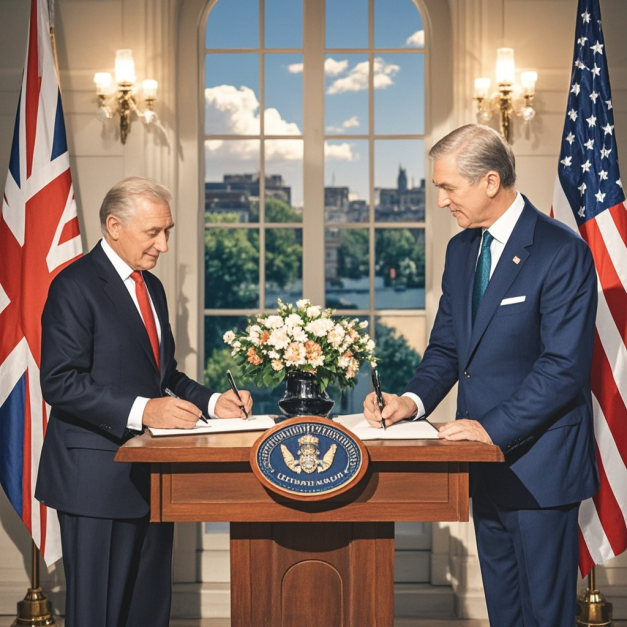UK and US Expected to Sign Trade Deal This Week, Involving Steel and Auto Tariff Quota Adjustments
Recently, the UK and the US are close to finalizing a trade deal, which is highly likely to be formally signed this week. The news has drawn widespread attention in financial markets, particularly due to adjustments in export tariff quotas for the UK's steel and automotive industries—a development that could have significant implications for related sectors and financial markets.
From a historical perspective, since the Trump administration imposed a 25% tariff on steel and automobiles, the UK's export industries have faced substantial challenges. As a traditional industrial powerhouse, the steel and automotive sectors play a crucial role in the UK's economic structure, with the US market being a key export destination. The tariffs led to sharp price increases for UK steel and automotive products in the US, severely undermining their competitiveness, reducing corporate revenues, and threatening jobs.
The core of the new agreement focuses on adjusting export quotas for UK steel and automobiles. By establishing specific export quotas, certain UK goods will be exempt from the full impact of the Trump-era tariffs. This means that, within the quota limits, UK steel and automotive companies can export to the US at relatively lower costs, partially restoring their price competitiveness in the US market.
For the UK steel industry, this deal is undoubtedly a major positive. In recent years, due to US tariff policies, steel companies have seen a significant decline in orders, increasing operational pressures. If implemented, the new agreement could boost exports to the US, improving revenues. From a financial perspective, steel companies' stock prices may rise, and their ability to raise capital in financial markets could strengthen. Additionally, upstream and downstream players in the steel supply chain—such as iron ore suppliers and steel processors—may also benefit indirectly, fostering broader industry recovery.
The automotive sector stands to gain as well. The UK's auto manufacturing is renowned for its premium and luxury brands, with the US being a critical consumer market. Previous tariff barriers had dampened sales of UK-made cars in the US. With the new agreement, UK automakers will enjoy smoother access to the US market under the quota system, potentially increasing sales. This would not only improve the financial health of automakers but could also influence credit policies from financial institutions. Banks may become more willing to extend loans to support expansion, production, and R&D efforts.
However, the deal is not without concerns. On one hand, the quota system means UK steel and automotive exports to the US will still face limitations, preventing a full return to pre-tariff market conditions. On the other hand, the agreement could trigger reactions from other nations. For instance, EU countries may worry about the UK gaining a trade advantage over the US, potentially leading to countermeasures that could disrupt the UK’s broader trade landscape and economic stability.
From a macroeconomic standpoint, if successfully implemented, the deal could provide a boost to UK economic growth. Increased exports would stimulate related industries, create jobs, enhance consumer confidence, and invigorate domestic consumption. Nevertheless, the UK government must remain vigilant against potential international trade disputes and adjust policies promptly to ensure steady economic development.
Overall, the impending UK-US trade deal is set to have far-reaching effects on the UK's steel and automotive industries, as well as financial markets. Market participants are closely monitoring the finalization and subsequent implementation of the agreement, which is poised to become a focal point in international finance and trade in the near term.
